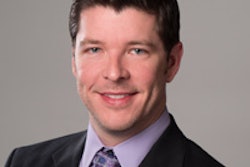
Do you know what other dental offices in your area are paying in rent? Before agreeing to rent, do some research to see what is the standard rate per square foot in the area.
When comparing the cost of base rent for different dental offices, it is important to compare the type of leases and their total expenses, not just the base rent or cost per square foot.
 Matthew Odgers, JD.
Matthew Odgers, JD.Local markets will usually even out the dental office rental rates for comparable dental offices. A tenant dentist can expect to pay roughly the same amount with a net lease, full-service lease, or modified gross lease for a similar quality office lease in the same area.
If your rent is lower than average, it may seem like a steal, but pay close attention to fixed increases over the life of the lease. An increase of 3% a year may be reasonable but compounded that amounts to almost 16% after five years over the original price. Awareness of the long-term costs of your rent will help you keep your overhead costs in check.
Among these long-term costs are regular maintenance charges. These charges, however, typically won't include upgrades to office space, such as new carpeting and paint. Additionally, the lease may require that the tenant dentist obtains approval for even minor interior cosmetic updates.
Lease renewals
“Local markets will usually even out the dental office rental rates for comparable dental offices.”
If you are negotiating a renewal of your lease, you may be able to negotiate a rent reduction, especially if the same landlord is offering breaks to new tenants. If you have a good track record, the landlord should want to negotiate, especially since getting a new tenant is more costly than continuing an existing relationship.
As cited earlier, another item to be aware of during lease negotiations is the office's decor. Even if the building is new, the decor can degrade significantly over time. As part of a dental office lease renewal, you may be able to get a commitment from the landlord to fund cosmetic renovations.
Either way, review your lease to see what the terms are relating to upgrading the space. If you would like the freedom to decorate as you please, make sure there are no restrictions from the landlord.
Lease assignments
One issue often overlooked by dentists -- but one that becomes very important when it comes time to sell or relocate -- is the ability to assign the lease. The landlord may agree to allow the tenant to assign their dental office lease to a party who is buying the practice and taking over the dental office. More common, however, the landlord will make both the lease term and the options to renew personal to the current tenant, leaving open the possibility of "hardball" negotiations when the incumbent dentist wants to move on.
Landlords may also insert a recapture clause. This clause allows for the immediate termination of the lease instead of approving or denying an assignment to a new tenant. Using this strong bargaining position, a landlord may ask for part of the purchase price of the business or other concessions, understanding that the buyer's bank will not approve financing without a lease in place.
During initial negotiations, a dentist should confirm whether there are restrictions on a future sale of the practice. The goodwill of the dental practice, a significant part of its overall assets, is often largely tied to office location.
Sometimes, however, a landlord might have other plans for the dental office space and may not wish to extend the term of the existing lease. The commitment may simply not extend past his obligations to the current tenant. Thus, anyone buying the practice would simply have to move elsewhere.
Attorney Matthew Odgers, JD, is the owner and founder of Odgers Law Group, a firm based in San Diego. He can be reached by email at [email protected].
The comments and observations expressed herein do not necessarily reflect the opinions of DrBicuspid.com, nor should they be construed as an endorsement or admonishment of any particular idea, vendor, or organization.


















